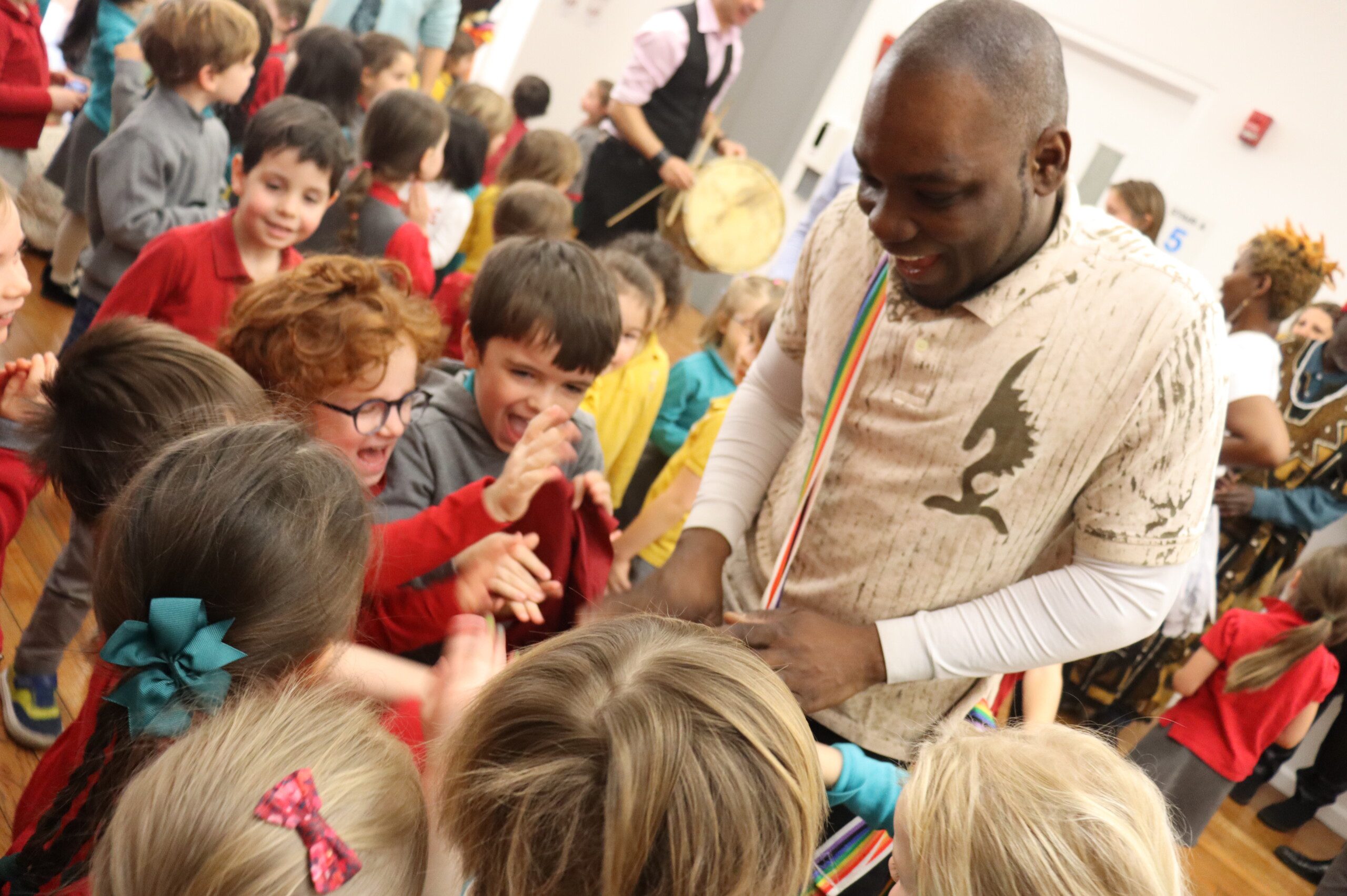“William the Conqueror didn’t want to be called ‘the Conqueror,’” writes Michel Foucault, because the nickname betrayed the fact that the power he exercised over the English did not come from a legitimate dynastic claim. We know that history is always written by the powerful, by those who have the privilege of choosing on behalf of others what is important and what is not.
Our celebrations of Black History Month came to a close today with a talk by artist Alexis Peskine and a presentation by Laura, Micah’s mom, about Ruth E. Carter’s costume design in Black Panther. I would like to thank the Diversity Committee organized by the Parents Association and The École’s IDEA Committee (Miriam in particular) for all of the activities they organized this month. From concerts to murals and a sensory experience in Maternelle to student presentations, we have made some important counterhistory achievements this month, allowing us to realize that “the history of some is not the history of others” (I’m quoting Foucault again from “Society Must Be Defended.”) It is crucial to highlight Black history, and I am delighted that the community of The École was able to seize this moment and make it a joyful, welcoming event celebrating our diversity.
Before the sudden appearance of AI via ChatGPT, one of the most talked-about subjects at school conferences and educational seminars was diversity–what we commonly call DEIB (Diversity, Equity, Inclusion, and Belonging). The topic takes a particular turn in French schools because of the profound difference between the conceptual tools we use and grew up with. In France, there is no getting around the question of la République and its ideal that all citizens have the same status and equal rights and duties whatever their background, religion, and heritage. In France, we, therefore, strive to mask and stifle differences as much as possible. That ideal can be found in l’école de la république–free, public schools dreamed up by Jules Ferry–that aim to give children from the suburbs (the not-so-leafy banlieues) the same chance of success as children from culturally rich cities. It’s an ideal whose flaws we know all too well; it’s an ideal that we criticize often (and take pleasure in doing so because we are French!) and whose results are not always convincing. But it remains an ideal, in spite of everything, and we believe in it because it created us and it shapes our vision of the world.
Conversations around DEIB are a fascinating exercise because, in the US, differences are not masked or stifled; they are revindicated and celebrated. It can be witnessed in a style of teaching that leaves more space for students’ personal expression, personality, and identity. This fundamental difference in points of view is the strength of The École (I shout it from the rooftops whenever I get a chance!) There is no clash between these two different visions of the world; instead, they complement and converse with each other (it’s no coincidence that identity politics originated in France–pioneered by Foucault–and that French Theory is more popular here than in its country of origin.) Understanding these differences, accepting them, and becoming better because of them is what we work on every day.
And now, on to another month and another history, the history of women, whose place and contribution were deemed unworthy of inclusion in school books for far too long.


